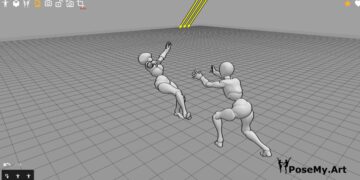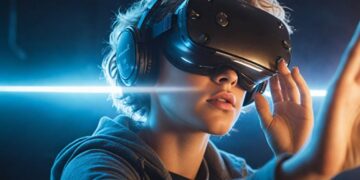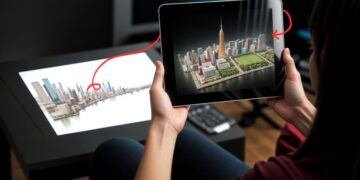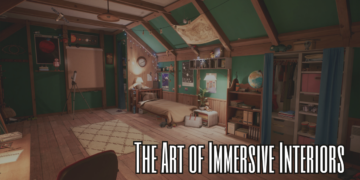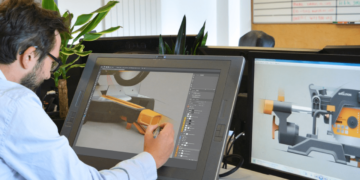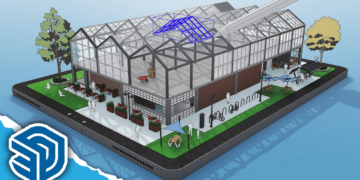The concept of Augmented Reality (AR) was first introduced in the late 19th century, but it has only been used in the past few years to enhance our current concept of reality.
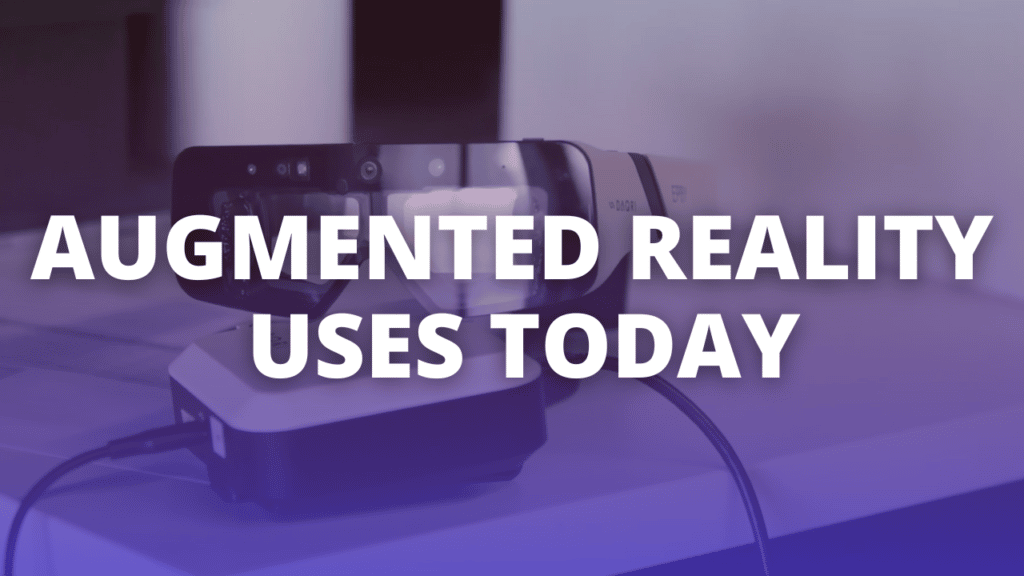
Today, we use AR in a variety of ways, from allowing people to reinvent the way they play games, to visiting new places, and much more.
This short introduction will explore the ways in which we use AR, and what the future holds for this technology.
Augmented reality definition
Augmented reality (AR) is an enhanced version of the real physical world that is achieved through the use of digital visuals, sound, or other sensory stimuli and the use of computer technology to overlay digital information with the physical world and make them look real. The technology has many practical uses, including improving navigation, enhancing gaming, and creating new forms of entertainment. It is also being used in a wide range of fields, from architecture to medicine.
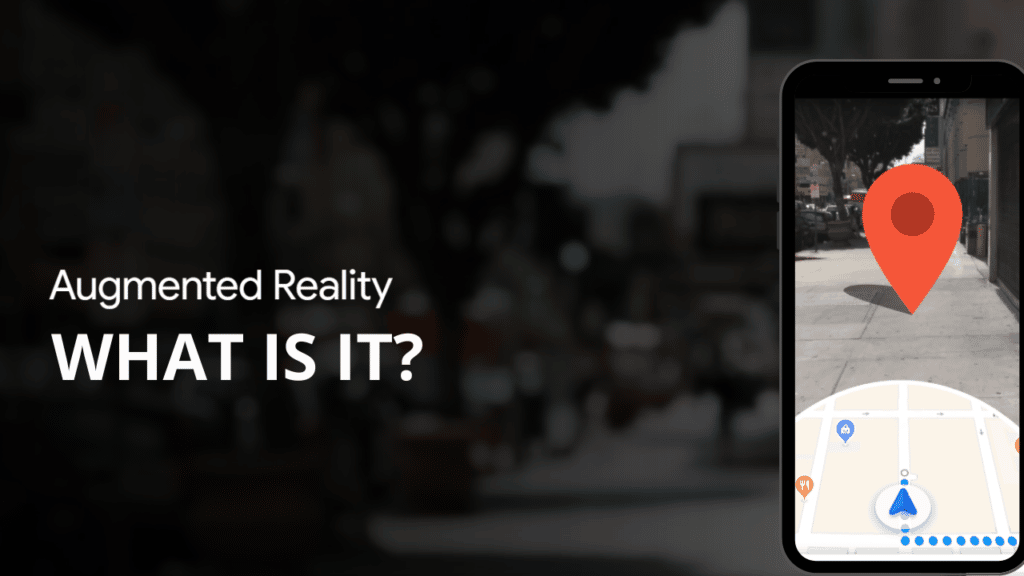
Other uses of augmented reality include finding directions or other information in the physical world, shopping online and in stores, and viewing 3D models of buildings and other objects.
Creating and experiencing Augmented Reality is a growing field. It’s a way to place virtual objects within the real world, and as these tools are improved, so are the ways we interact with the physical world around us. As this technology grows, it will serve a wider community of people and allow them to have new experiences.
When to use augmented reality?
Augmented reality is used in several areas, most notably games.
The computer and smartphone games market is on the way to saturation, so game makers have already jumped to the second generation of platforms such as virtual reality and Augmented Reality and made huge leaps in this field.
1. Games
Therefore, the global market for electronic games is currently witnessing fierce competition, which intensified after the success of the game “Pokemon Go”, which set a record at the global level, as the number of its users since its launch has reached more than six hundred million people.

“Pokémon Go” is a game that combines Augmented Reality, GPS, smartphone technologies and cultural contents, launched by the Japanese specialized company “Nintendo”. That game began to spread in the United States, Australia and New Zealand, and became one of the top applications of Google Inc.
A Pokémon game with three attractive features:
- it blurs the boundaries between websites and real-world locations.
- it enables players to return to their childhood world filled with monsters, orcs, and adventures.
- it is a game that provides the opportunity for active participation and participation of players as an adventurous group that challenges various shapes and plans and virtual monsters.
Specialists attribute the amazing success of Pokémon to the emergence of augmented reality technology.
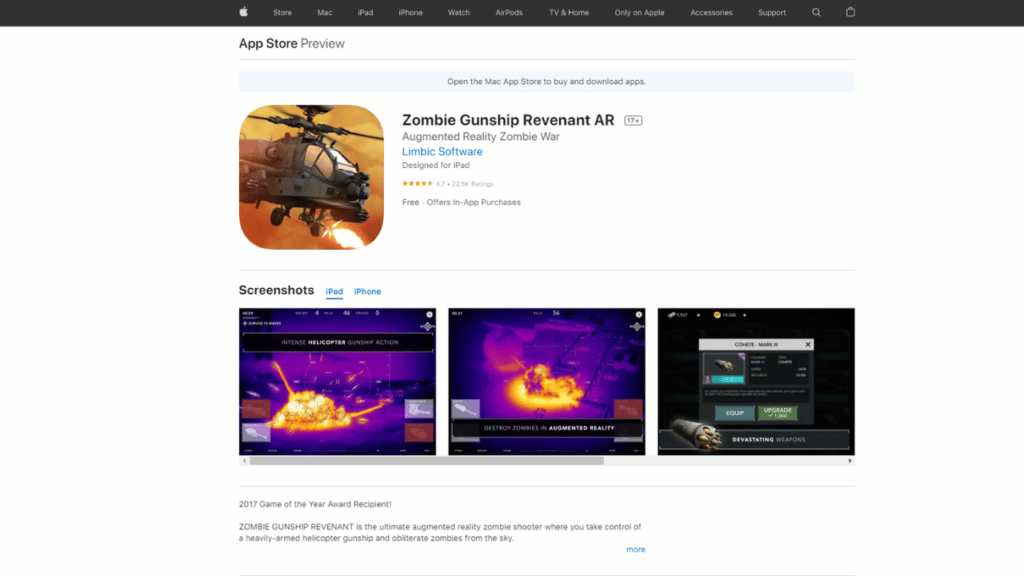
There’s also Zombie Gunship Revenant AR. It’s a game where you fight zombies with planes using Augmented Reality. This game represents the end of the world by the zombie attack on humans and you are the only savior by using a helicopter to attack the zombies and rid the humans of them. The game has many stages and the plane has many weapons and developments that you will go through. All you have to do is develop the plane and move from one stage to another.
2. Augmented reality marketing uses
Augmented Reality is a new strategy adopted by many companies that want to combine the elements of print and online advertising while offering an interactive experience. Brands can put trackers in print catalogs, movie posters, packaging, or products to launch augmented reality experiences such as 3D animated characters, additional information or links directly to online purchase.
3. Augmented reality in education
In a world where simply studying a textbook or a YouTube video is not enough to stimulate young digital minds, Augmented Reality offers a new experience of conveying information. AR devices provide a more affordable option for schools to purchase for multiple classrooms.
Education has always been one of the most prominent and developed fields over the past years. The educational environment is a fertile environment for the application of Augmented Reality technology, as it can be used to transform paper books into interactive display platforms via smart devices.
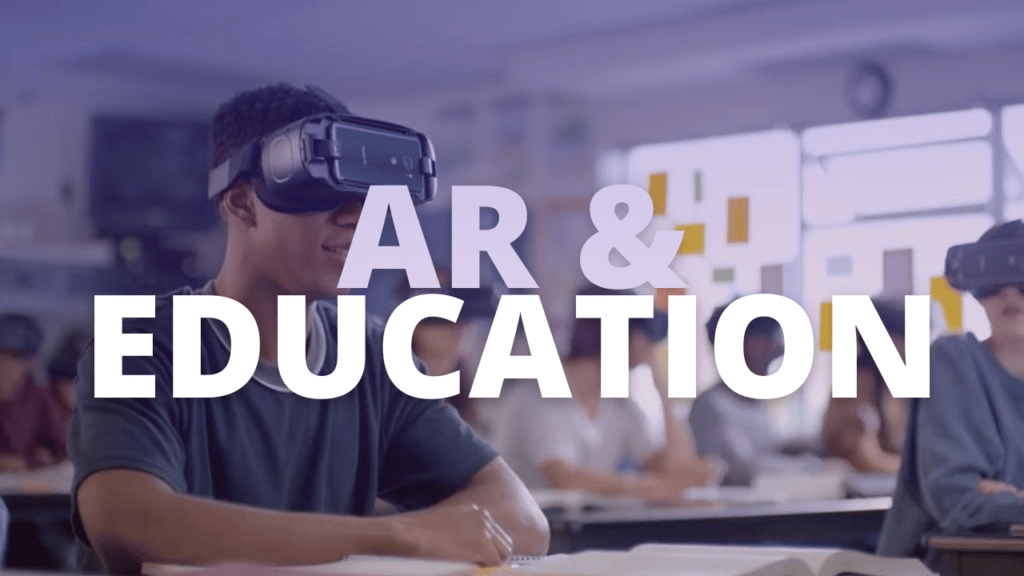
Instead of reading the history of the pyramids, for example, a three-dimensional pharaonic cartoon character can be made that tells the story of the pyramids and displays to live video recordings by simply pointing the camera of smart devices towards the book or it may be used in human anatomy lessons by seeing the organs in three dimensions. This facilitates the explanation for the teacher and gives the student a deeper understanding of the lesson.
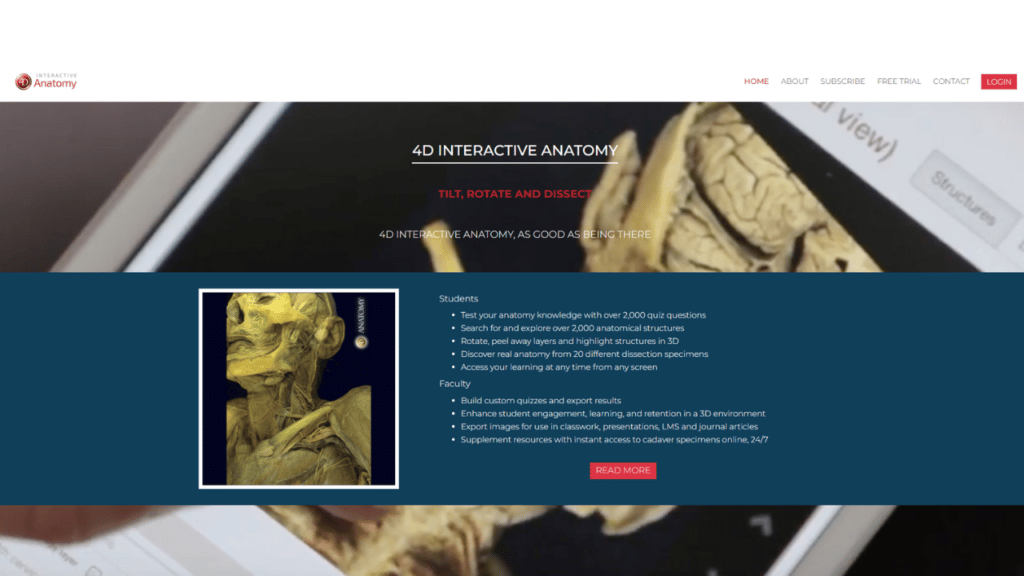
AR has many possibilities that could make it affect the traditional learning process, including the ability to change the place and time of study, and introduce new and additional methods, making the classroom a more attractive place, and the information more grasped.
Augmented Reality helps students achieve better results by imagining and fully immersing themselves in the subject; Instead of reading a theory about something, students can actually see it with their own eyes.
A goo example of prominent AR applications in education is Anatomy 4D, which is an application that enables people to learn about the anatomy of the human body and explore their bodies in an interactive virtual way by using AR.
4. AR-assisted navigation
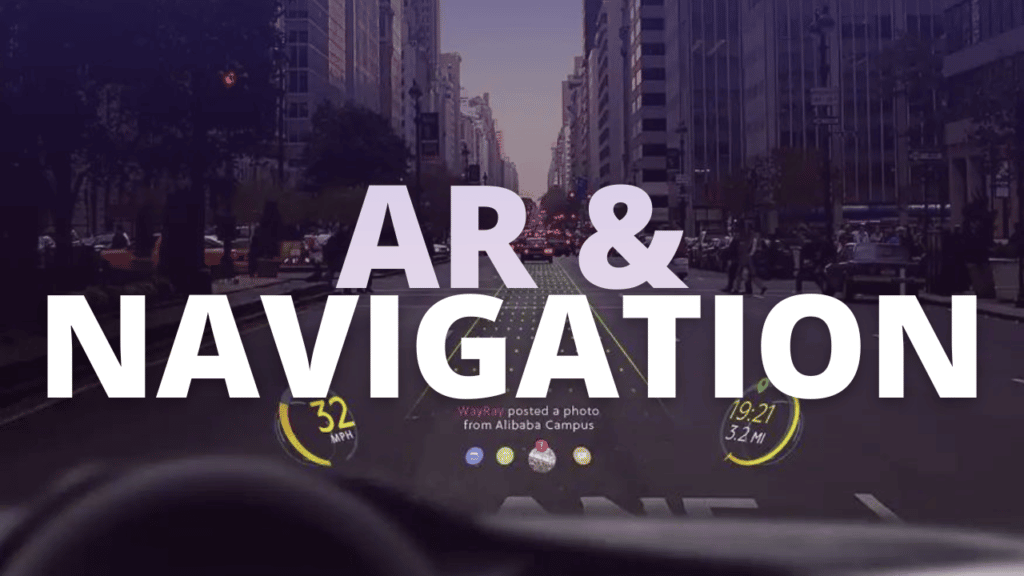
GPS systems use Augmented Reality to facilitate moving from one point to another. Using the phone’s camera with GPS, users see the exact path via live footage of what’s in front of the car
There is, for example Google Maps Live View launched in 2019 for phones, which determines what is going on around you by scanning what the camera sees once you press the button, the best path will be calculated, with graphics showing you directions and voice instructions.

Mercedes-Benz is one of the pioneers in AR-empowered car navigation. A driver can see house numbers and street names popping out as the car approaches them. There is a camera in the windscreen that records the scene and sends it to the media display.
Some hospitals, airports, universities, and shopping malls also use Augmented Reality navigation to find specific points or service locations. For example, the Dubai Airport is a huge area with plenty of similar corridors, which makes it difficult to move around or find any place. But AR has made it very easy to navigate and find whatever location you’re looking for.
5. Augmented reality in healthcare
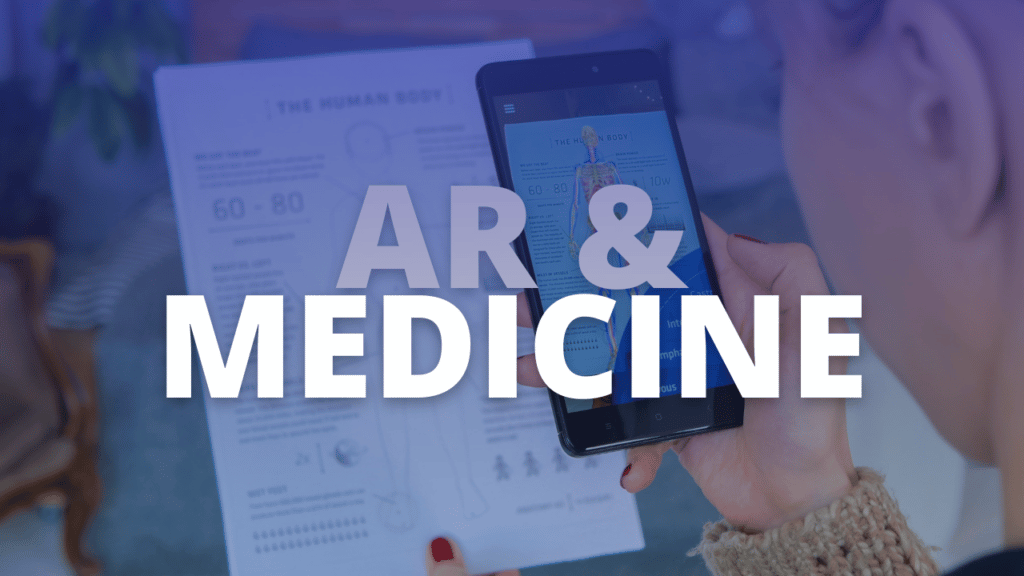
Augmented Reality can reduce the risks of an operation by giving the surgeon improved sensory perception. Medical students use technology to practice surgery in a controlled environment. This technology can be combined with MRI or X-ray systems and present everything in one view to the surgeon.
6. AR for fitness
Augmented Reality can help motivate people to exercise, with well-built AR experiences that help people stay healthy in a fun way. For example, a game called Zombies Run is somehow similar to the critically acclaimed Pokemon Go, but instead of chasing Pokemon, the player needs to escape from virtual zombies while playing The Real World.
7. AR for Fashion

In fashion, the use of Augmented Reality is incredibly amazing, as they allow the merging of the physical and digital worlds to provide an enjoyable shopping experience for customers, as they allow customers to try on clothes virtually, creating a realistic digital version of an entire store.
8. AR in Military

Augmented Reality applications in the military field:
This technology offers many applications in the military field of the land, air and naval forces, virtual or floating Heads-Up Display panels are the best example of this, and pilots can use them because they are practical, As the pilot does not need to make any movement or turn his head, and this is very important, he is thus retrieving all the main information without being distracted.
The information displayed in front of the pilot includes his height, speed, line of sight and angles of deviation from him, and information about UFOs can also be displayed, speed and other important data.

This technology can also be used by foot soldiers through the (Head-mounted display) technology, symbolized by an acronym (HMD), with helmets worn by soldiers, who can display the coordinates by which they could know the enemy’s locations and distinguish them.
Cameras can be installed in helmets, through which soldiers can survey the surroundings without exposing them to injury. As is the case with pilots; It is important for the soldier to fully focus on observing those around him, and stopping for one moment to know if his coordinates might expose him to danger. Here lies the importance of augmented reality, which displays all the important information in front of him.

Military engineering centers in the United States have developed techniques and devices based on virtual reality, aimed at increasing the realism of training, and placing the soldier in a similar situation to the one of the battlefield in terms of psychological and physical pressures, which increases the effectiveness of the exercises. Physical exercises and shooting practice in the training grounds are not good enough, and these techniques are still being developed.
Augmented Reality jobs and career paths
Augmented Reality experts are in high demand in a variety of industries. As the technology behind AR continues to evolve, more and more job opportunities are opening up for AR professionals. For those with the requisite qualifications, there are a variety of AR job positions and eventual career paths available. We’ll go over some of them in this section.
AR developer/engineer
AR developers are responsible of designing, developing and implementing AR applications. They use platforms like PTC’s Vuforia, Google’s ARCore, Apple’s ARKit and so on. Some of their main tasks and duties are as follows:
- Implementing AR features such as object recognition and tracking, gesture recognition, and spatial mapping.
- Writing code in languages such as C#, C++, and JavaScript to control the behavior of AR elements.
- Testing and debugging AR applications to ensure they function correctly on different devices and platforms.
- Participating in the full lifecycle of AR product development, from concept to launch.
- Troubleshooting and debugging issues related to AR technology and its integration with other systems.
AR designer
AR designers deal with the visual and interactive aspect of the AR apps and experiences. These visual elements entail using software like Adobe Aero, Tvori, Roar Editor, Google’s Tilt Brush, Masterpiece Studio, various 3D software and so on. Their day-to-day tasks include (but are not limited to):
- Creating the visual and interactive elements of AR experiences.
- Designing and prototyping UI/UX AR interfaces, interactions and user flows.
- Creating 3D models and animations, images, videos and audio to use in AR experiences.
AR product manager
AR product managers are in charge of supervising and overseeing the entire development pipeline of AR projects and services. Some of their tasks include:
- Defining and managing the product roadmap and vision for AR products.
- Identifying and analyzing market trends and customer needs to inform product development.
- Gathering and prioritizing product and customer requirements, and working with development teams to ensure they are met.
AR marketer
The main activity of AR marketers is creating and executing marketing strategies for AR products and services, often working with advertising agencies and other marketing partners. Their day-to-day tasks and duties include:
- Developing and managing the messaging and positioning of AR products.
- Building and maintaining a strong online presence for AR products through social media, content marketing and SEO.
- Developing and managing marketing campaigns to generate leads and increase brand awareness.
- Tracking and analyzing product performance metrics to inform product development and marketing strategies.
- Building and managing relationships with partners, vendors, and other stakeholders to support the development and launch of AR products.
Conclusion
The variety of uses for Augmented Reality is vast. It can be used to make your home easier to manage, to improve your navigation skills, to watch movies while on the move, to play games, to learn new things, to create virtual objects, and so much more.
There was a time where it was exclusive to entities like NASA and the US Army, but they’re now invading the market to reach all industries and fields of activity. As we see more and more applications of this technology, we will find more ways to use it in everyday life.
The possibilities for how we interact with the physical world through Augmented Reality are endless. The best part: it’s affordable and easy to use even on your own, the future promises new ventures that we’re yet to discover.













